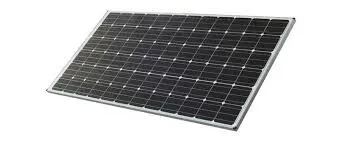Innovative Solutions for Harnessing Energy from Rooftop Solar Installations
Rooftop Solar Harnessing the Power of the Sun
In the era of increasing energy demands and growing concerns about climate change, renewable energy sources have become more essential than ever. Among these, rooftop solar energy stands out as a viable and effective solution for both residential and commercial energy needs. By converting sunlight into electricity, rooftop solar systems not only reduce utility bills but also contribute to a sustainable future.
The Basics of Rooftop Solar Energy
Rooftop solar panels consist of photovoltaic (PV) cells that absorb sunlight and convert it into electrical energy. When sunlight hits the cells, it excites the electrons, creating an electric current. This direct current (DC) is then converted into alternating current (AC) by an inverter, making it usable for household appliances and electrical grids. Homeowners can either use this electricity directly, store it in batteries for later use, or send it back to the power grid, often receiving credits or compensation in return.
Financial Benefits
The initial investment in rooftop solar panels can be significant, but the long-term financial benefits often outweigh the costs. By generating their own electricity, homeowners can drastically reduce their monthly utility bills. In many regions, government incentives and tax credits are available to offset the installation costs. Furthermore, solar energy systems generally increase property values. A study by the U.S. Department of Energy indicated that homes equipped with solar energy systems sell for more than those without.
Environmental Impact
The environmental implications of switching to rooftop solar energy are profound. Traditional energy sources, such as coal and natural gas, contribute significantly to greenhouse gas emissions, which drive climate change. In contrast, solar energy is clean and renewable, producing electricity without harmful emissions or pollutants. By adopting rooftop solar, homeowners actively participate in reducing their carbon footprints and promoting environmental sustainability.
Technological Advancements
rooftop solar

Recent advancements in solar technology have made rooftop solar systems more efficient and accessible. Innovations such as bifacial panels, which can capture sunlight from both sides, have increased energy production capacity. Additionally, smart inverters and energy management systems allow users to monitor and optimize their energy usage seamlessly. These developments have made solar energy more reliable, efficient, and user-friendly.
Challenges and Considerations
While the benefits of rooftop solar are numerous, there are also challenges to consider. Not all rooftops are suitable for solar installations; factors such as roof orientation, shading from trees or buildings, and structural integrity can impact a system's effectiveness. Moreover, the upfront costs, although decreasing, can still be a barrier for some homeowners. It’s essential for potential users to conduct thorough research, seek professional assessments, and evaluate the return on investment based on their unique circumstances.
Community Solar Programs
For those who cannot install solar panels on their rooftops—perhaps due to renting, unsuitable roofs, or financial constraints—community solar programs offer an alternative. These programs allow multiple participants to invest in a shared solar installation, benefiting from the energy produced without needing to install individual systems. This collective approach democratizes access to solar power, making it a more inclusive option for diverse communities.
The Future of Rooftop Solar
The future of rooftop solar energy looks bright, with increasing adoption rates across the globe. As technology continues to advance and governments push for greener policies, solar energy is likely to become a staple in the energy mix. A growing number of companies are also investing in sustainability, further driving innovation in solar technologies.
In summary, rooftop solar energy represents a powerful avenue for individuals and communities to engage in responsible energy consumption. Its financial, environmental, and social benefits are compelling reasons to consider this renewable resource. By tapping into the sun’s abundant energy, we can pave the way for a sustainable future, ensuring that generations to come inherit a healthier planet. Moving forward, it is crucial to foster awareness and support for solar initiatives, enabling broader participation in the clean energy revolution.
-
Understanding the Advantages of Solar String Inverters for Your Energy SystemNewsApr.29,2025
-
Choosing the Right PV Inverter: A Comprehensive GuideNewsApr.29,2025
-
The Future of Solar Power: Exploring Bifacial Solar PanelsNewsApr.29,2025
-
The Complete Guide to Solar Panels: Efficiency, Cost, And InstallationNewsApr.29,2025
-
The Best Options for Efficiency and Cost-EffectivenessNewsApr.29,2025
-
Harnessing the Power of Off-Grid Solar Inverters for Energy IndependenceNewsApr.29,2025







